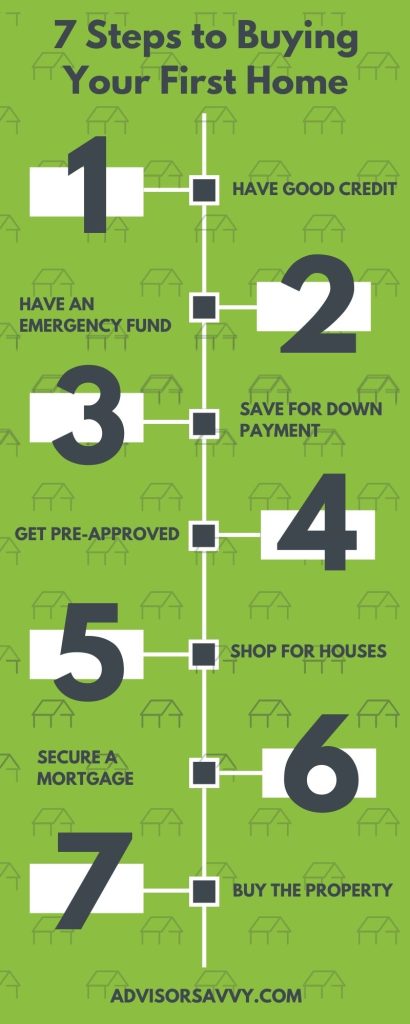
For many Canadians, buying a home has been a lifelong dream. Unfortunately, some unexpected challenges have popped up in the Canadian housing market making it difficult for everyone to access affordable housing. Although, there have been whispers of a housing market crash for several years. If the housing market were to crash, it would be an opportunity for some to enter the market at a lower price. In this article, we’ll discuss how to buy a house in Canada under numerous conditions, including if the housing market were to crash. Keep reading to learn more!

Table of contents
- Is it hard to buy a house in Canada?
- How much money should I save before buying a house in Canada?
- How to buy your first house in Canada?
- How to buy a house with bad credit?
- How to buy a house with low income Canada?
- How do I start planning to buy a house?
- How to Buy a House if the Canadian Housing Market Crashes
- Should I buy a home in 2024?
Is it hard to buy a house in Canada?
Yes, it is difficult to buy a house in Canada. As of December 2023, the national average cost of a home was $657,145. This represents a 5% increase since the previous year. The continuously rising cost of housing is making it more and more challenging for new home buyers to enter the market. Furthermore, the average annual income in Canada was about $65,000 as of October 2023, according to the Labour Force Survey. This means that the cost of a home is about 10 times your annual salary on average in Canada ($657,145 / $65,000).

Get the lowest mortgage rates and mortgage rate holds in Canada
For reference, in 1970, the average annual salary was $9,600 and the average cost of a home was $30,426. This means that a home was roughly 3 times your annual salary 50 years ago ($30,426 / $9,600). As you can see, the disparity between income and the cost of housing has increased drastically which is one reason why it’s become more challenging to purchase a house in Canada.
Keep in mind that the above figures are national averages. However, this doesn’t account for the regions of Canada that have exceptionally high housing prices, such as Toronto and Vancouver. Their housing prices may skew national averages. This means that, in more rural parts of Canada, it may be more affordable to purchase a home.
Other hurdles Canadians face when purchasing a home include the mortgage stress test and the down payment rules. With the down payment, Canadians must put a minimum of 5% of the purchase price down. However, if you don’t put at least 20% down, you are required to pay mortgage default insurance. These additional regulations make it more challenging for Canadians to enter the housing market.
Related Reading: Average Cost of a Home in Canada
How much money should I save before buying a house in Canada?
Owning real estate is generally the quickest way to establish and build wealth in Canada. But, owning real estate eats up a lot of cash. If you’re not careful, you can end up being asset rich and cash poor.
Before buying a house in Canada, you should have a down payment between 5% and 20% of the property purchase price. In addition, you should have a healthy emergency fund with three to six months worth of living expenses. You might need to dip into these funds while navigating the transition to being a homeowner.
Remember that buying a house isn’t just about savings. It’s also about your earnings. A mortgage is expensive (especially now with the current prime rate) so you should be able to comfortably cover the mortgage payment with your monthly income.

How to buy your first house in Canada?
Buying your first house in Canada is an exciting endeavor. It’s the start of a new life and the achievement of a major life goal, so congratulations! Generally, these are the steps to buy your first home in Canada:
- Step One: Maintain Good Credit. Having a good credit score is important when approaching banks for financing. Make sure you’re paying attention to your credit score now so it’s in good shape when you want to ask lenders for financing. If you have bad credit, do what you can to improve your score before seeking out a mortgage.
- Step Two: Build an Emergency Fund. When adjusting to homeowner life, you may need to lean on an emergency fund. Before you pull the trigger on buying a home, make sure you have a healthy emergency fund that’s readily accessible.
- Step Three: Save up a Down Payment. The next step is to save up for a down payment. To determine how much you’ll need, figure out the average housing price in your region and save 5% to 20% of that amount.
- Step Four: Consider Getting Pre-approved. Mortgage pre-approval has a number of benefits. Consider getting pre-approved for a mortgage before you begin shopping to make the buying process easier.
- Step Five: Shop for Houses. Now for the fun part, shopping for houses! The main thing to consider here is finding homes that are within your budget and suit your lifestyle, such as being close to your work. Otherwise, have fun while searching for your dream home!
- Step Six: Secure a Mortgage. When you’ve found the perfect property, it’s time to secure a mortgage. Be prepared to provide financial information to lenders, such as pay statements and your credit report.
- Step Seven: Buy the Property and Start Making Payments. When you have the mortgage, you can purchase the property and complete the transaction. Next, be sure to always pay your mortgage on time and in full to preserve your credit.
Related Reading: Tax Free First Home Savings Account
How to buy a house with bad credit?
Buying a house with bad credit will pose some additional challenges. However, it is not impossible to obtain a mortgage with bad credit. Here’s some things to consider when purchasing a house with bad credit:
- Improve your credit score. Before reaching out to lenders, do what you can to improve your credit score. Mainly, you should pay off debt so banks award you for a lower utilization ratio.
- Expect high interest rates. Banks offer their best interest rates to borrowers with excellent credit. If you have bad credit, chances are you won’t be able to access these rates. When approaching lenders, be sure to manage your expectations.
- Consider alternative lenders. The big banks don’t always want to take a chance on borrowers with bad credit. If you’re having trouble with them, you might want to consider alternative lenders, such as credit unions or private lenders.
- Bigger down payment. Having a larger down payment can communicate greater financial stability to lenders. Think about holding off on buying a home until you have a more substantial down payment.
- Accentuate other aspects of your finances. If your credit isn’t the greatest, build a positive case for yourself on other areas of your finances. Perhaps you’ve always paid your rent on time and can get a letter of recommendation from your landlord. Or maybe you recently repaid all your outstanding debts and your credit score hasn’t caught up yet. Whatever it is, focus on the positives and be sure to mention that to potential lenders.
How to buy a house with low income Canada?
If you have lower than average income in Canada, it can be particularly challenging to enter Canada’s housing market. The main thing to consider would be settling in an area of Canada that has reasonable housing prices. For instance, consider purchasing a home in Calgary versus Vancouver. Although, sometimes this isn’t a possibility if you live in an expensive part of Canada for work. So what do you do then? The next option would be to explore employment opportunities in a region of Canada that has more affordable housing. Other tips to purchase a home with low income include cutting expenses to increase your savings, utilize a budget, and find ways to increase income.
A final piece of advice is to hold off on purchasing a home until the situation feels comfortable. The last thing you want to do is commit to a mortgage that causes great financial burdens. We know that buying a house helps build wealth, but it’s not worth it if it unnecessarily strains your finances! In fact, a popular alternative is to rent and invest in stocks and other investments that have a lower barrier to entry. You can still establish and build wealth this way without unnecessarily straining your finances.
Related Reading: What is the Stock Market and How Does it Work? A Beginner’s Guide
How do I start planning to buy a house?
Purchasing a home is the largest investment most individuals make in their lifetime. For this reason, planning can be a daunting and overwhelming task. There are three things to consider when planning for your home purchase: location, income, and down payment.
As mentioned, the price of a house varies dramatically across Canada. Start by assessing the cost of housing in your current area. If it feels too expensive for your wallet, you may want to consider settling down in another part of Canada if homeownership is really important to you. Unfortunately, housing has become unaffordable in some parts of Canada for the average person. So, you may have to consider relocating to a more affordable region.
Another important aspect to consider when planning for homeownership is your annual income. What is it currently and do you anticipate an increase? Will the amount reasonably cover the cost of a mortgage and homeownership? If not, you can either figure out ways to earn a higher income or consider purchasing a home in a cheaper region of Canada.
Finally, planning for the down payment is another important consideration. Once you’ve selected a location within your budget, find the average home price. Then, begin saving 5% to 20% of that amount as a down payment. Once you have reached your goal, you can begin the home shopping process.
Related Reading: Best Places to Retire in Canada and Why
How to Buy a House if the Canadian Housing Market Crashes
Many Canadians feel there is a housing crisis in Canada and the housing market will eventually crash as a result. Real estate is generally the bedrock of an economy, so if it crashes, there will be negative economic consequences. However, the weight of these consequences is typically felt by those who are already homeowners with established wealth. They experience a reduction in net worth and may face further financial issues if they are over-leveraged. For those who aren’t yet homeowners, it’s an opportunity to enter the market at long last.
If the Canadian housing market does crash, it is easier for homeowners to enter the market because the prices are lower than usual. Although, one must be prepared to invest should this happen. Given that the housing market hasn’t crashed in Canada at the time of writing, you should put effort into preparing now. In order to seize the opportunity, you’ll need to have good credit, high enough income to cover the mortgage payments, and enough savings for a down payment. If the housing market crashes, you can get a discount on a home. But you have to have the funds available to secure the purchase, otherwise the opportunity will be missed. So, if you’re not financially prepared yet, get the ball rolling! Even if the housing market never crashes, you can still benefit from achieving these financial goals.
Should I buy a home in 2024?
The decision to purchase a home is significant and depends on a lot of factors. Generally speaking, 2024 is not the best year to purchase a home in Canada due to the exceptionally high interest rates. As of January 2024, the prime rate is 7.2%. Normally, the prime rate is much lower, but the Bank of Canada increased it to curb inflation and consumer spending. This means it’s going to be more expensive to obtain a mortgage right now than ever before. This is definitely something to consider before purchasing a home in 2024.
With that in mind, it’s important to remember that everyone’s financial situation is unique. It might make sense for one individual to purchase a home in 2024, but not make sense for another person. If you’re having trouble navigating your way through home ownership, consider consulting with a financial advisor. Complete this quick questionnaire to be matched with one today!
Read More: How Does a Mortgage Work in Canada?
